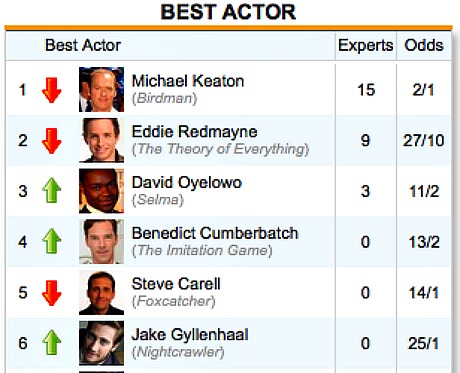In response to Joseph Califano‘s 12.26 Washington Post Op-Ed piece that sharply disputed Selma‘s portrayal of President Lyndon Johnson as being reluctant to support voting rights legislation, director Ava DuVernay tweeted yesterday that “folks should interrogate history…don’t take my word for it or LBJ’s rep for it…let it come alive for yourself.” I tried that yesterday by reaching out to LBJ historians Robert Caro, Robert Dallek and Ronnie Dugger…no dice. DuVernay’s film essentially portrays Johnson as a pragmatic, vaguely patronizing racist (i.e., that dismissive pat on the shoulder of David Oyelowo‘s Martin Luther King) who had to be pressured into pushing for the 1965 Voting Rights Act. Tom Wilkinson‘s LBJ “offers a few shadings and nuances,” as I noted yesterday, “but mainly you remember his disagreements with King and saying ‘not now.’” So this morning I captured this anecdote from former Johnson administration attorney Roger Wilkins in David Grubin‘s LBJ, a PBS American Experience doc that originally aired in 1991.
How reluctant was Johnson to push for voting rights legislation in early ’65? Was he in fact reluctant, as Selma dramatizes? Perhaps he expressed concerns along these lines at some point. But yesterday’s HE story contains a White House recording of a 1.15.65 discussion between Johnson and Martin Luther King that undermines Selma‘s view.
David McCullough‘s narration of LBJ quotes Johnson as saying that while some men have called the White House a prison, “I’ve never felt freer.”
There’s a story that came from James Farmer, leader of the Congress of Racial Equality, in an 8.24.08 New Yorker story by George Packer called “LBJ’s Moment”: “I asked him how he got to be the way he was,” Farmer recalled. “He said, ‘What do you mean?’ I said, ‘Well, here you are, calling senators, twisting their arms, threatening them, cajoling them, trying to line up votes for the Civil Rights Bill when your own record on civil rights was not a good one before you became Vice President. So what accounted for the change?” Johnson thought for a moment and wrinkled his brow and then said, ‘Well, I’ll answer that by quoting a good friend of yours and you will recognize the quote instantly. ‘Free at last, free at last. Thank God Almighty, I’m free at last.’”’
Read more


